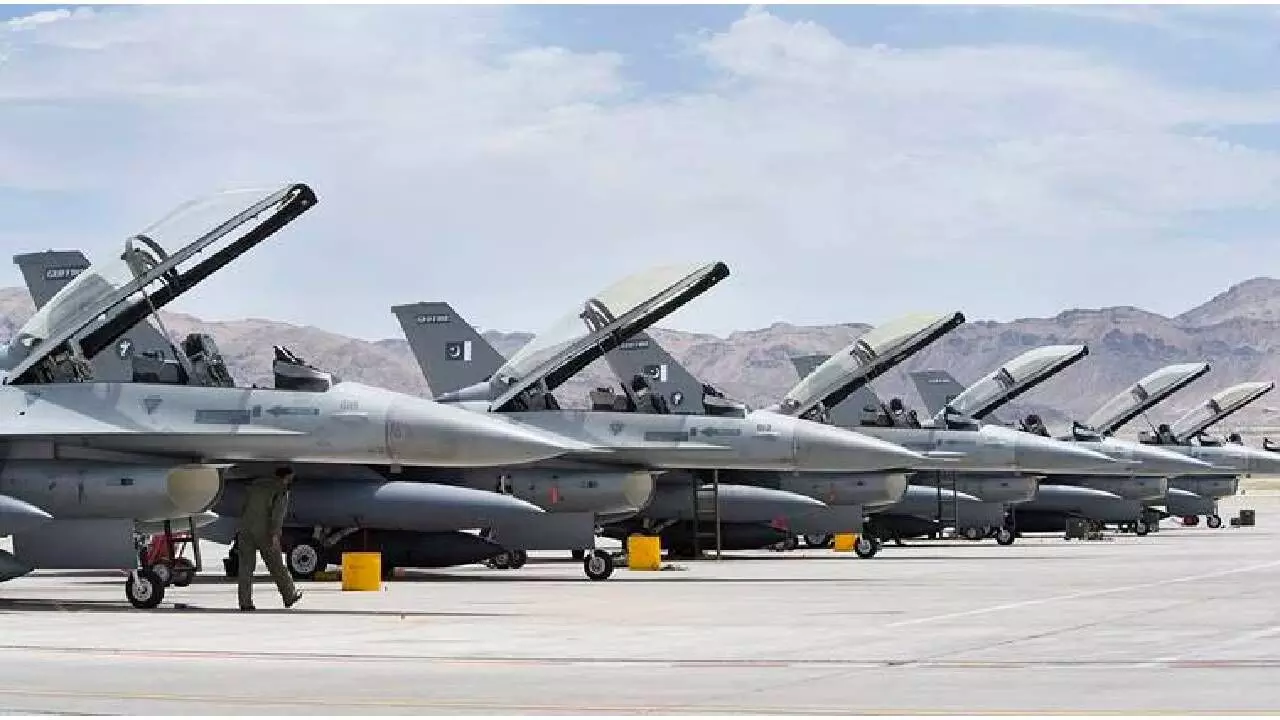Lockheed Martin Shares Flat as F-16 Jets Fail to Impress in India-Pakistan Conflict
Lockheed Martin stock remains flat as F-16 jets underperform during India-Pakistan conflict. Analysts predict potential order book setbacks for the US defense giant after Operation Sindoor.
Lockheed Martin Shares Flat as F-16 Jets Fail to Impress in India-Pakistan Conflict

New Delhi, June 3, 2025 – Lockheed Martin, the U.S. aerospace and defense giant known for manufacturing the F-16 fighter jets used by Pakistan, has seen its stock deliver virtually zero returns in the past month. The stock's stagnant performance comes in the wake of India’s Operation Sindoor, where Pakistan’s military arsenal—including F-16s and Chinese J-10s—was unable to breach India’s robust air defense systems.
On May 12, following four days of intense cross-border conflict, Lockheed Martin shares came under pressure. Despite a mild recovery later, the stock ended May up by just 0.97%, settling at $482.38, offering no significant upside for investors. In contrast, the stock had risen 6.95% in April after a long losing streak.
Operation Sindoor: A Turning Point?
India launched Operation Sindoor on May 7 in retaliation for the deadly April 22 terror attack in Pahalgam, Jammu & Kashmir, which killed 26 civilians. The operation targeted terror bases in Pakistan and Pakistan-occupied Kashmir. During the skirmish, Pakistan reportedly deployed F-16s, J-10 fighter jets, drones, and missiles—all of which were effectively neutralized by Indian air defense.
This has raised questions among defense analysts and investors about the efficacy of the F-16s, long considered the backbone of Pakistan’s air force. "Despite being provided for non-war use, Pakistan is said to have used Lockheed Martin’s F-16s during the conflict. Their failure to penetrate Indian defenses could hurt the company’s global reputation and future orders," said Avinash Gorakshkar, Head of Research at Profitmart Securities.
Investor Sentiment Dented
Lockheed Martin isn’t the only defense firm feeling the heat. Chinese fighter jet manufacturer AVIC Chengdu Aircraft, which makes the J-10, saw its stock tumble 20% from its May 12 peak.
According to Gorakshkar, the market is pricing in the possibility of weaker order books for both companies in upcoming quarters, amid geopolitical scrutiny and performance concerns.
Technical Outlook: A Bullish Reversal Ahead?
Despite recent underperformance, some analysts remain bullish on Lockheed Martin’s long-term prospects. Ganesh Dongre, Senior Technical Research Manager at Anand Rathi, noted that the stock is consolidating within a $440–$510 range, forming a double-bottom pattern—a classic bullish signal.
"With the MACD showing signs of bottoming out, the momentum could shift in favor of bulls. A breakout above $510 could push the stock toward $543–$575, aligning with key resistance levels and Fibonacci targets," Dongre added.

